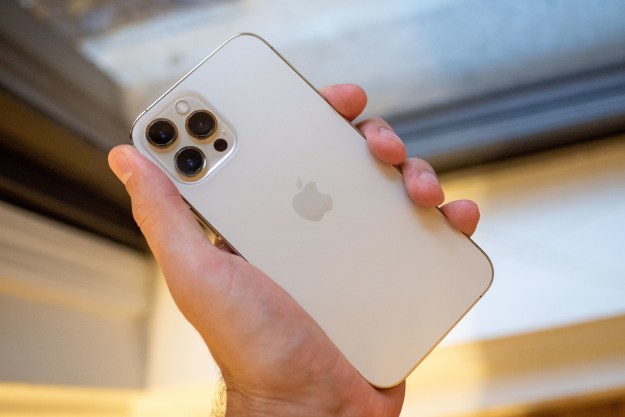 If the work of a pair of scientists in South Korea is developed further, a future where people are commonly seen spitting onto their smartphones may not be too far off.
If the work of a pair of scientists in South Korea is developed further, a future where people are commonly seen spitting onto their smartphones may not be too far off.
The two scientists, Hyun Gyu Park and Byoung Yeon Won, believe the smartphone of tomorrow could be used to diagnose an infection by placing a small amount of saliva onto its touchscreen. An app (what else?) would then be used to analyse the sample and identify the user’s ailment.
As explained by the New Scientist, it works through the touchscreen’s ability to detect minuscule differences between various types of saliva, depending on the virus present.
“Since these touchscreens can detect very small capacitance changes we thought they could serve as highly sensitive detection platforms for disease biomarkers,” Park said.
Using an iPhone-sized touchscreen in an experiment, the pair showed that such technology was indeed capable of detecting bacteria and could even differentiate between varying concentrations of the bacteria contained within the tiny droplets placed on the screen.
The scientists, based at the Korea Advanced Institute for Science and Technology in Daejeon, admitted that there’s still some way to go with the research. Up to now Park and Won have failed to find a way of getting the technology to identify individual pathogens, though they believe it will be possible at some point.
It sounds like an excellent idea, though spreading infected saliva on your phone may not do much to contain a virus. Fortunately, Park is planning to develop a film which can be stuck onto the touchscreen. “Nobody wants direct application of bio-samples onto their phone,” he told the New Scientist.
If the technology does become a reality, it could also allow people in their homes with long-term illnesses to monitor their condition, saving an unnecessary trip to the hospital, or flagging up a serious problem early if one arises.
[Image: mezzotint / Shutterstock]
Editors' Recommendations
- How to mirror your smartphone or tablet on your TV
- How your smartphone could replace a professional camera in 2023
- How to tell if your smartphone has been hacked
- The best touchscreen gloves for your smartphone
- The best fitness workout accessories for your smartphone


